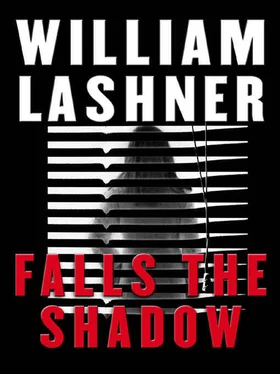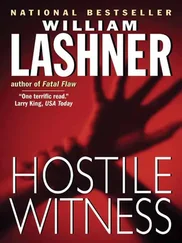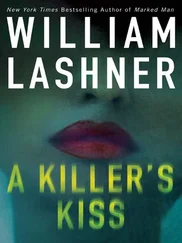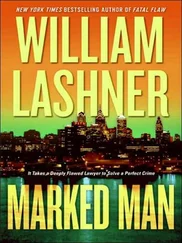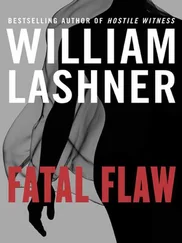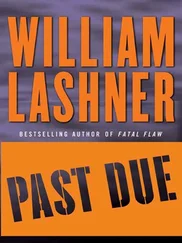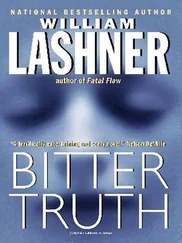“Will it hurt?”
“A little.”
“I don’t want to go.”
“When something’s broken, you have to fix it or it gets broken worse. It’s the same with teeth. This doctor, his name is Dr. Pfeffer, he said he can fix your teeth so they won’t get worse.”
“I don’t want to go.”
“Daniel, you have to.”
“No.”
“How about we make a deal?”
“I don’t want to go. I don’t. I don’t.”
“How about this, Daniel? If you go to the dentist, I’ll find your sister.”
“Tanya?”
“Yes. How about that?”
He opened his mouth and rubbed his tongue over the blackened, irregular stubs of his upper teeth.
“He’s a good dentist,” I said. “He has gentle hands.”
“I want to see Tanya.”
“So we have a deal?”
Before he could answer, he swung his head around. I followed his gaze. Julia and Isabel were walking toward the small opening in the gate.
Daniel ran to his mother, buried his head in her thigh.
There was something about Julia that scared me as her son held on to her leg for dear life. She was a pretty woman, and sweet, too, without a hint of violence in her. She would never willfully hurt Daniel, that was clear. But there was something else in her along with the sweetness, a weakness, and it was the weakness that scared me. I had never been a parent, true, but I had been a son, and I knew how a mother’s weakness could slice into a boy’s psyche like a knife. She couldn’t say no, Julia, she couldn’t deny candy or a night bottle to a child whose teeth were rotting before her very eyes. She would rather ignore a problem than deal with it, and if pressed, she would rather run. That’s why she had been avoiding Isabel, running whenever Social Services planned a visit. And that’s what she would do if I started pressing her on her missing daughter. She’d run, and she’d take my client with her.
So when she came through the fence and Daniel ran to her, I didn’t rush forward and start badgering her about her missing daughter, about Tanya, demanding to know what had happened to her, where she had gone, threatening to call the police. No, that’s not what I did, even though it was a struggle to hold myself back. No, what I did instead was smile.
“How was he?” she said as I approached.
“He was terrific,” I said. I tousled his hair. “He’s a great kid. Julia, I spoke to a dentist about Daniel’s teeth. He says you shouldn’t give him a bottle in the crib before he goes to bed.”
“It’s the only way he’ll sleep. He’s been a bad sleeper since he was born.”
“It’s really terrible for the teeth. You need to stop. The dentist also told me you need to have someone examine Daniel.”
“I can’t afford a dentist.”
“This dentist said he’d be willing to look at Daniel and treat him, if he can, and to do it for free.”
I took a card from my jacket pocket, handed it to her. She looked at it, bit her lower lip.
“His name is Dr. Pfeffer,” I said. “His office is in Center City, on Sixteenth Street. He’s waiting for your call. He says if you don’t do something quickly, there might be permanent damage. But he also seemed to think if you let him take care of it right away, let him put caps on the teeth, there’s a good chance that Daniel’s permanent teeth, when they come in, will be fine.”
“Caps?”
“That’s what he says.”
“Daniel won’t go. He’s scared of doctors and won’t let anyone touch his teeth.”
“Oh, he’ll go,” I said. Daniel was looking up at me, fear in his eyes. “We made a deal. Didn’t we, Daniel?”
He nodded.
“What was the deal?” said Julia.
I was about to say that it was between a lawyer and his client and hoped that covered it for her, but then Daniel spoke.
“He promised he’d get me some ice cream,” he said.
I don’t know if that was the moment I fell for my client, but it was certainly the moment I decided I was going to find Tanya Rose. Because with that little covering lie, Daniel had told me all he ever needed to about his plight in this world, and that of his sister, too. He loved his mother, of course he did, what child doesn’t? But even at the tender age of four, he knew he couldn’t trust her completely to take care of him or his sister. With one little covering lie, he told me he wanted me there, wanted me to help. Sometimes that’s all it takes.
“What do you think?” said Isabel as we watched mother and son walk away from us and back to their sad little apartment above Tommy’s High Ball.
“I’m worried about him.”
“Any particular reason?”
“Well, the teeth, for one. We’ll see if she follows through with Dr. Pfeffer.”
“I’ll make sure of it,” said Isabel.
“And then there’s the question about Daniel’s sister.”
“There’s a sister?” She started searching through her file. “I don’t see any indication of a sister.”
“That’s the point,” I said. “I think I need to see the judge.”
We were swamped.
The François Dubé murder trial was coming fast, and there was still way too much to do. Every piece of evidence had to be examined, every piece of testimony offered at the first trial had to be carefully reviewed for weaknesses. The advantage of a retrial is that you have so much information to work with, pretty much the whole of the prosecution’s case is open and available for your delectation. The disadvantage of a retrial is that you have so much information to work with, you can get buried in the details.
We had covered the conference-room table and floor with mounds of documents and files, all the pleadings and motions, all the testimony, all the police reports, all the forensics reports and crime-scene photographs. We had nicknamed the conference room, with its morass of paper, the Dubé Tar Pit, because we found ourselves stuck there all hours of the day as we tried to build some sort of defense. But as Beth and I worked our way through it all, and the shape of what we were up against became clearer, I began to feel uneasy.
“Something’s not right,” I said late one evening in the tar pit. In my hand were two photographs. The first was from the crime scene, it showed the body of Leesa Dubé sprawled across the floor of her bedroom, the walls sprayed with dark drops, the spill of blood like a halo about her head. She was wearing panties and a T-shirt, no rings, no jewelry, fresh out of bed. One arm was spread wide out to the side, the other was bent beneath her body. Her face was almost calm, pale above the bloody gash left by a bullet through her neck. The second photograph was of Leesa Dubé shortly before her murder, eyes bright, her smile dazzling and unforgettable.
“What did you find?” said Beth.
“Nothing, and that’s just it. We’re missing something here.”
“A report Mia Dalton didn’t give us? I thought we received everything.”
“No, nothing like that. But still we’re missing something.” I dropped the photographs, gestured to the piles of paper. “All this stuff is what the prosecution is going to present. The last trial was fought right here, on this battlefield, and François lost.”
“But they don’t have Seamus Dent this time,” said Beth.
“True, but Whitney Robinson said he wasn’t that great a witness. His absence isn’t enough to turn the tide. And remember, even though we get to see all of Mia Dalton’s case, she gets the chance to correct all the mistakes the prosecution made before. Frankly, she’s a better lawyer than her boss.”
“So what do you want to do?”
“I don’t want the fight to be about all this crap,” I said. “I want to change the battlefield. What we need is another suspect. Someone to shoulder the blame. It’s what Whitney said was missing in the first trial.”
Читать дальше
